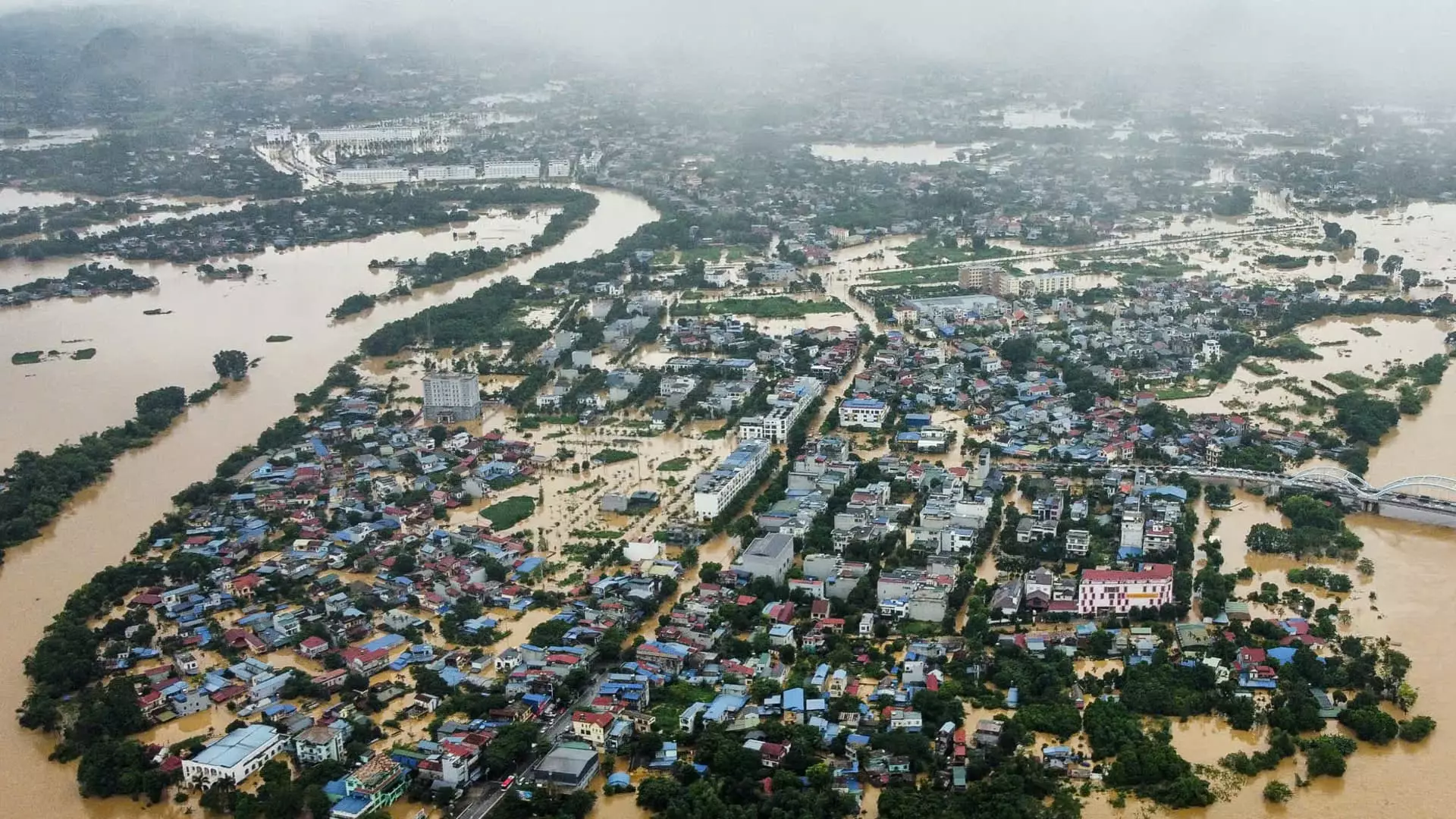The Indo-Pacific region, a melting pot of cultures, economies, and geopolitical narratives, continues to make headlines in 2024. This year has been marked by a mixture of trials, particularly linked to climate catastrophes and demographic shifts, while also celebrating cultural innovations and political dynamics. From natural disasters to drops in birth rates, this article delves into the paradoxes and trends that shaped the Indo-Pacific landscape this year.
The year 2024 has been a grim one for communities across the Indo-Pacific, largely due to escalating climate-related events. Many countries have experienced the devastating effects of extreme weather, with Super Typhoon Yagi epitomizing the year’s destructive potential. Striking a wide swath from the Philippines through southern China and into the heart of mainland Southeast Asia, the typhoon left ruin in its wake. Hundreds lost their lives, while countless others were displaced or left without livelihoods. This year stands as a testament to the growing vulnerability of the region amid changing climate patterns, where natural disasters are becoming alarmingly frequent and lethal.
In addition to typhoons, the yearly monsoon rains have wreaked havoc across Afghanistan, Bangladesh, Pakistan, India, and Nepal, with floods claiming numerous lives and uprooting millions from their homes. Meanwhile, droughts in various parts of the region have brought about severe water shortages, draping the year in a cloak of despair. The rapid increase in “climate casualties” indicates that 2024 could be regarded as one of the deadliest years in recent memory for the Indo-Pacific.
Amid the pervasive challenges, a silent crisis looms in the form of plummeting fertility rates across East Asia. Countries such as South Korea, China, Japan, Taiwan, and Hong Kong are grappling with the consequences of a demographic shift that is endangering their economic stability. The root causes are multifaceted: women are increasingly prioritizing their careers and delaying motherhood, while soaring costs related to housing, education, and childcare are further discouraging larger families.
In 2024, South Korea officially became classified as a “super-aged” society, with 20% of its population now aged 65 or older. This statistic paints a troubling picture of an aging population that could lead to long-term workforce shortages and an unsustainable social welfare system. East Asia now finds itself on the precipice of a demographic dilemma, overshadowing cultural and economic advancements as communities struggle to envision a future with fewer children.
The political landscape in the Indo-Pacific has been as dynamic as ever in 2024, marked by a series of elections that have shaped the tide of governance throughout the region. The year began with tumult in Bangladesh, where Prime Minister Sheikh Hasina faced backlash after a contested election process, ultimately leading to her departure from power amidst widespread student protests. Meanwhile, South Korea faced its crises, as President Yoon Suk-Yeol declared martial law, only to be met with resistance from the National Assembly, culminating in an impeachment process that underscores the fragility of democratic institutions.
Contrasting these troubles, Taiwan stood resilient, showcasing the strength of its democratic processes. The transition of power following peaceful elections not only bolstered Taiwan’s international standing but also provided a stark contrast to the unrest seen in neighboring nations. Throughout the year, the trajectories of democracy in Asia have been anything but uniform, reflecting a complex tapestry of governance that spans from authoritarian regimes to vibrant democracies.
Despite the numerous challenges faced by the Indo-Pacific, 2024 also witnessed a notable cultural phenomenon: the continued global rise of South Korean popular culture, known as “Hallyu.” Be it through the infectious rhythms of K-pop or the gripping narratives of K-dramas, this cultural wave resonates deeply not only in Asia but worldwide. The release of hit shows on platforms like Netflix, including the much-anticipated “Squid Game” Season 2, highlights the ability of Korean culture to captivate diverse audiences.
The literary world also saw significant recognition for South Korea, with author Han Kang achieving international acclaim by becoming the first Korean and first Asian woman to win the Nobel Prize for Literature. The burgeoning influence of Hallyu is projected to yield substantial economic benefits, with estimates suggesting it could bring in $198 billion by 2030, thereby positioning South Korea as a pivotal player on the global cultural stage.
As 2024 draws to a close, the Indo-Pacific region stands at a crossroads, facing extraordinary challenges yet simultaneously celebrating cultural milestones and democratic advancements. An era characterized by climate chaos, demographic shifts, and political upheaval underscores the resilience of nations in the face of adversity. Although the road ahead may be fraught with difficulties, the indomitable spirit of the Indo-Pacific people continues to foster hope. Through cooperation, innovation, and cultural exchange, this diverse region may yet navigate its myriad challenges and emerge stronger.

